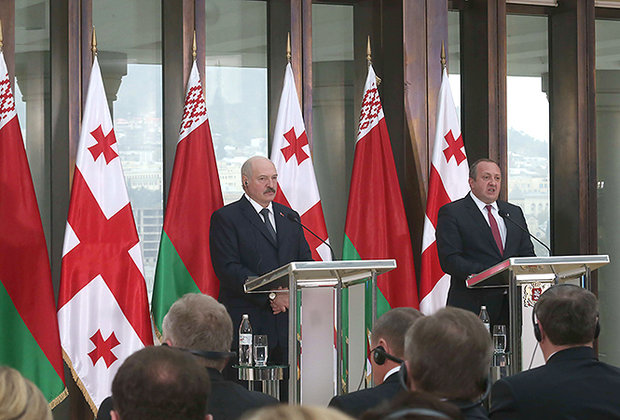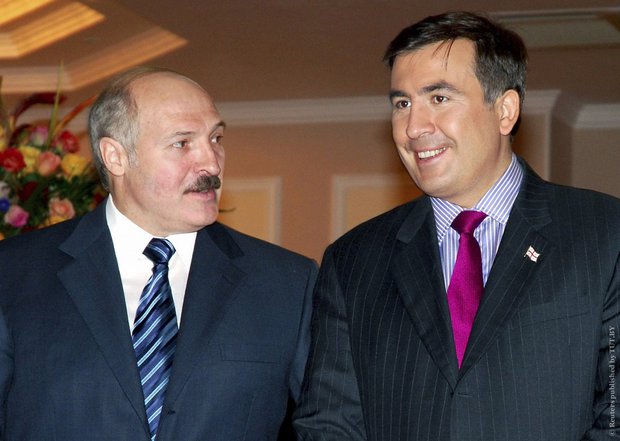The Western Approach to Belarus

While attending the annual convention of the Association for the Study of Nationalities (ASN) in New York last week, I served as discussant on a panel on Belarus.
A paper by Tatsiana Kulakevich, a PhD candidate at Rutgers University, focused on the possible impact of the Belarusian Diaspora on US policy making. While her findings were preliminary, they posed some fascinating questions, not least, why the United States, by any standards, a Great Power, has for the past decade been so preoccupied with Belarus, a nation of 9.5 million with few natural resources and a very minor trading partner.
Ms Kulakevich noted that the first major evidence of US concern about the flouting of human rights in Belarus was the US Democracy Act, introduced by Rep. Christopher Smith (R-New Jersey 4th district) in 2004, which was subsequently renewed and remains in place.
In the Senate, one of the Belarusian opposition’s biggest supporters has been John McCain, the outspoken Republican Senator from Arizona. Around the time Smith introduced the Belarus Democracy Act, McCain was in Riga at a conference held by the Foreign Ministry of Latvia, lambasting Lukashenka.
US Interest in Belarus
The US perceives the country as an anomaly in Europe and its president as an outdated hangover from the Soviet period Read more
Though at times the commitment of the United States to promoting democracy in Belarus has been exaggerated—the US spends far less money on the Belarus opposition than it did on its Ukrainian counterpart in the past, and one would have to say that Ukraine is a much bigger priority—it perceives the country as an anomaly in Europe and its president as an outdated hangover from the Soviet period.
The corresponding question, however, is that given the commitment of government officials like Smith and McCain and their links with the Diaspora, why has support for the opposition been so ineffective? Dozens of opposition leaders and prominent figures have been hosted in Washington. The US also supports many NGOs directly or indirectly, which work on Belarusian affairs. Each election brings forth new leaders; all seem doomed to fail.
The EU and Belarus
Sikorski warned Lukashenka “Sooner or later, you will have to flee your own country.” Read more
The same statement applies also to the EU. Four years ago, following the attack on demonstrators in Independence Square in Minsk after the December 2010 Presidential elections, Polish Foreign Minister Radoslaw Sikorski warned Lukashenka “Sooner or later, you will have to flee your own country.”
EU governments pledged more than $120 million to support opposition groups and the president’s time in office seemed numbered. In fact today it is Sikorski who is out of office, while Lukashenka remains very much in place.
One can suggest several reasons why the status quo reigns in Belarus in 2015.
US and EU commitment to change, while sincere, is far from wholehearted. The lack of change in Belarus paradoxically brings stability. There is no civil strife in Belarus. On 29 April, Lukashenka declared: “Belarus remains an island of peace, calm, and order, and that is our achievement.” For many residents, these are not inconsiderable factors when entering a polling station.
Europe is like the Lernaean hydra of Greek mythology, it has many heads seeking different goals. Some would like change in Belarus, others seek its support in limiting Russian influence in Ukraine, Moldova, Georgia, and other areas. Regime change in Belarus is very much on the back burner.
President’s Control Mechanisms
Lukashenka’s regime is not continually violent; it is selective Read more
The president has acted vindictively and ruthlessly against any manifestations of opposition, while carefully controlling elections in his favour. But the violence is targeted and specific, and usually of short duration. Lukashenka’s regime is not continually violent; it is selective. The extreme violence comes during an election or immediately afterward, or at times, such as 1999-2000, or 2010, when the president is genuinely afraid of being removed from office.
Also, by controlling most of the media, restricting alternative sources of power, and maintaining a populist and personal style of leadership, he has managed to stay in office, largely funded by Moscow loans, and balancing commitment to Russia with occasional moves toward the West, none of which seem remotely sincere. The media factor is the weakest grounded because of the increasing influence of social networks and growing ineffectiveness of the print media but it should not be discounted.
Miscalculations and Dissension
There is a fundamental disassociation between what the West has asked of Belarus and the needs and desires of its electorate. Part of the latter has a jaundiced view of Western agencies and NGOs, and perceives some opposition leaders as practically Western puppets living off grants and subsidies from countries that seek to introduce radical reforms into the country. During elections, opposition candidates have had a tendency to spend as much time in foreign capitals as in the towns and villages of their own country.
Lastly, we should return to the Diaspora. As Ms. Kulakevich pointed out, the most influential group, and quite a small one, arrived in the United States after the Second World War, many fleeing from the Red Army. Three or four generations later, they are figuratively much further removed from their homeland and often deeply divided.
By contrast the much larger Ukrainian Diaspora in North America has close ties with the government in Kyiv. President of the Ukrainian Canadian Congress, Paul Grod, was an invited guest at Petro Poroshenko’s inaugural ceremony as president last summer, for example.
Another Option
Prominent Belarusians in the West have ties only with the opposition, which in turn is ever more marginalised. The assumption is that the Belarusian leadership is monolithic, devoted to its president. Not only is that unlikely in Belarus, it is far from the case anywhere.
Peaceful regime change usually takes place from within. It is less violent and more clinical than a revolution. Such an option has rarely been explored in Western policy toward Belarus, which instead opted to sanction the entire leadership. It is time for some rethinking of a policy that has clearly failed.
David Marples
David is a Distinguished University Professor at the University of Alberta in Canada. He writes a monthly column for Belarus Digest.






